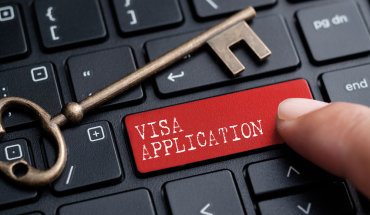Are you considering an O1 visa as part of your U.S. immigration plans?
The U.S. O1 visa is a relatively rare visa category. That’s because the O1 visa is intended for people who are at the peak of their professional, artistic, scientific, or other endeavors. They must have achieved something outstanding in one of the following fields:
- The sciences
- Education
- The arts
- Business
- Motion pictures or television
- Athletics
The O1 is a nonimmigrant visa. This means the visa holder will be in the country temporarily. He or she must come to the United States as part of work in the area of extraordinary ability. The initial period of stay granted by the O1 visa lasts up to three years.
The O1 can be extended in increments of one year if the original event or activity is ongoing.
Establishing the Nature of Your Extraordinary Ability
Rules pertaining to the O1 establish specific criteria for proving extraordinary ability.
In most cases, this is done in consultation with a peer group, such as a labor organization, or a recognized expert in the visa applicant’s field of ability.
For applicants who specialize in motion pictures or television, an appropriate labor union and a management organization must be consulted.
For most O1 applicants, the consulting opinion will be submitted by the expert or organization on appropriate letterhead, including any necessary watermarks or other authenticating materials. However, not all extraordinary abilities are recognized by a professional organization.
What if There is No Appropriate Labor Organization for Consultation?
Although it is rare, some people may have extraordinary abilities that are not recognized by a specific peer organization. This can make it difficult to find a recognized expert who can submit a consultation in support of the visa application.
In these cases, the decision is made by U.S. Citizenship and Immigration Services based on “evidence of record.” Evidence of record includes written and recorded documentation that can show the visa applicant is a subject of “sustained national or international acclaim.”
Such records can include, for example, newspaper articles, interviews, published books and so on. They should be published or provided by established, authoritative sources either in the visa applicant’s country of origin or internationally.
In general, “evidence of record” visa applications will take longer to process.
Accelerate Your Visa Process with a Los Angeles Immigration Attorney
At the Law Offices of Kate L. Raynor & Associates, we’ve helped thousands of people from all backgrounds with their immigration challenges. We offer free consultations, affordable prices, and free payment plans. Contact us today to learn more.





